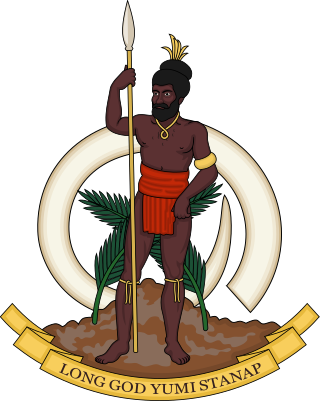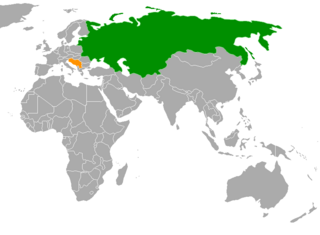
Cuba's foreign policy has been fluid throughout history depending on world events and other variables, including relations with the United States. Without massive Soviet subsidies and its primary trading partner, Cuba became increasingly isolated in the late 1980s and early 1990s after the fall of the USSR and the end of the Cold War, but Cuba opened up more with the rest of the world again starting in the late 1990s when they have since entered bilateral co-operation with several South American countries, most notably Venezuela and Bolivia beginning in the late 1990s, especially after the Venezuela election of Hugo Chávez in 1999, who became a staunch ally of Castro's Cuba. The United States used to stick to a policy of isolating Cuba until December 2014, when Barack Obama announced a new policy of diplomatic and economic engagement. The European Union accuses Cuba of "continuing flagrant violation of human rights and fundamental freedoms". Cuba has developed a growing relationship with the People's Republic of China and Russia. Cuba provided civilian assistance workers – principally medical – to more than 20 countries. More than one million exiles have escaped to foreign countries. Cuba's present foreign minister is Bruno Rodríguez Parrilla.

The foreign relations of Laos, internationally designated by its official name as the Lao People's Democratic Republic, after the takeover by the Pathet Lao in December 1975, were characterized by a hostile posture toward the West, with the government of the Lao People's Democratic Republic aligning itself with the Soviet bloc, maintaining close ties with the Soviet Union and depending heavily on the Soviets for most of its foreign assistance. Laos also maintained a "special relationship" with Vietnam and formalized a 1977 treaty of friendship and cooperation that created tensions with China.

Vanuatu maintains diplomatic relations with many countries, and it has a small network of diplomatic missions. Australia, France, Japan, New Zealand, the People's Republic of China, South Korea and the United Kingdom maintain embassies, High Commissions, or missions in Port Vila. The British High Commission maintained a continued presence for almost a century, though closed from 2005 until reopening in 2019.

Since its independence from France in 1962, Algeria has pursued an activist foreign policy. In the 1960s and 1970s, Algeria was noted for its support of Third World policies and independence movements. Since its independence, Algeria has been a member of the Arab League, the African Union and of the United Nations.

Walter Hadye Lin̄i was a Raga Anglican priest and politician who was the first Prime Minister of Vanuatu, from independence in 1980 to 1991. He was born at Agatoa village, Pentecost Island. On his mother's side, he was a descendant of the high chief Virasangvulu, while on his father's side, he was descended from the famous weaver, Nuenue, as well as from the high chief Viralalau.
The concept of Melanesian socialism was first advocated by Father Walter Lin̄i of the New Hebrides, who became the country's first Prime Minister upon its independence from France and the United Kingdom in 1980. Lin̄i's views on socialism were inspired by Julius Nyerere's experiments in African socialism in Tanzania.

The United States and Vanuatu established diplomatic relations on September 30, 1986 – three months to the day after Vanuatu had established diplomatic relations with the Soviet Union. Relations were often tense in the 1980s, under the prime ministership of Father Walter Lini in Vanuatu, but eased after that. At present, bilateral relations consist primarily in US aid to Vanuatu, and are cordial.

Democratic Republic of the Congo–Russia relations are the bilateral foreign relations between the Democratic Republic of the Congo and Russia. The Democratic Republic of the Congo has an embassy in Moscow and an honorary consulate in Yekaterinburg. Russia has an embassy in Kinshasa. The relations between the two countries were established on July 7, 1960, and restored since November 30, 1967.

Relations between Vanuatu and Cuba began shortly after the former gained its independence from France and the United Kingdom in 1980, and began establishing its own foreign policy as a newly independent state. Vanuatu and Cuba established official diplomatic relations in 1983.

Tonga and the Soviet Union established formal diplomatic relations in April 1976. Tonga was the first Pacific Island country to establish relations with the USSR.

Libya–Vanuatu relations refer to foreign relations between Vanuatu and Libya.

The French Republic and the Republic of Vanuatu have long-standing bilateral relations which have varied over the years between tense and amicable. Vanuatu, then known as the New Hebrides, was a Franco-British condominium from 1906 to 1980, and maintained formal relations with both of its former colonial masters after gaining independence. Franco–Vanuatuan relations were rocked by a series of crises in the 1980s, and broke down completely on several occasions, with Vanuatu expelling the French ambassador in 1981, in 1984 and in 1987. Relations improved from the 1990s onwards and, today, France provides development aid to Vanuatu. The two countries also share amicable economic and cultural relations; both are members of the Organisation internationale de la Francophonie.

The Republic of Vanuatu has been a member of the United Nations since the year of its independence in 1980. The country was a particularly active member in the 1980s, when, governed by Prime Minister Father Walter Lini and represented by Ambassador Robert Van Lierop, it was a consistent advocate for decolonisation. Subsequently, its emphasis within the United Nations shifted to the issue of climate change and the vulnerability of Small Island Developing States.

The Kingdom of Tonga and the Union of Soviet Socialist Republics established formal diplomatic relations in April 1976. Tonga was the first Pacific Island country to establish relations with the USSR. The USSR was dissolved in 1991 and was succeeded by the Russian Federation as the successor state.

The Republic of Vanuatu and the Union of Soviet Socialist Republics established official diplomatic relations on June 30, 1986 - three months to the day before Vanuatu established diplomatic relations with the United States. With the dissolution of the Soviet Union in 1991, the Russian Federation emerged as its successor state in 1991.

India and the Soviet Union had cooperative and friendly relations. During the Cold War (1947–1991), India did not chose sides between the Capitalist Bloc and the Communist Bloc and was a leading country of the Non-Aligned Movement (NAM). Relations ended in 1991 with the dissolution of the Soviet Union.

Diplomatic relations between the Soviet Union and Sri Lanka were established in 1956 under the leadership of prime minister S. W. R. D. Bandaranaike.

Libya–Yugoslavia relations were historical foreign relations between Libya and now split-up Socialist Federal Republic of Yugoslavia. Two countries established formal diplomatic relations in 1955.

Soviet Union–Yugoslavia relations were historical foreign relations between Soviet Union and Yugoslavia. Both states are now-defunct states with dissolution of the Soviet Union in 1991 and breakup of Yugoslavia from 1991 through 1992. Relations between the two countries developed very ambiguously. Until 1940 they were openly hostile, in 1948 they deteriorated again and in 1949 were completely broken. In 1953–1955 period, bilateral relations were restored with the signing of Belgrade declaration, but until the collapse of Yugoslavia they remained very restrained. Relations with Soviet Union were of high priority for Belgrade as those relations or their absence helped the country to develop the principle of Cold War equal-distance on which the Yugoslav non-alignment policy was based.

North Korea–Yugoslavia relations were historical foreign relations between North Korea and now broken up Yugoslavia. The Socialist Federal Republic of Yugoslavia and the Democratic People's Republic of Korea established diplomatic relations on 30 October 1948. During the initial period of the Korean conflict, motivated by the recent Tito-Stalin split and contrary to other countries in Eastern Europe, Yugoslavia remained firmly not aligned to any of the blocs in the Korean War. Yugoslavian literature compared attack on South Korea by North Korea as similar to the attack on Yugoslavia by the German Army and the attack on Hawaii by the Japanese army while Yugoslav representation at the United Nations even accused the Soviet Union of having started the Korean War.



















